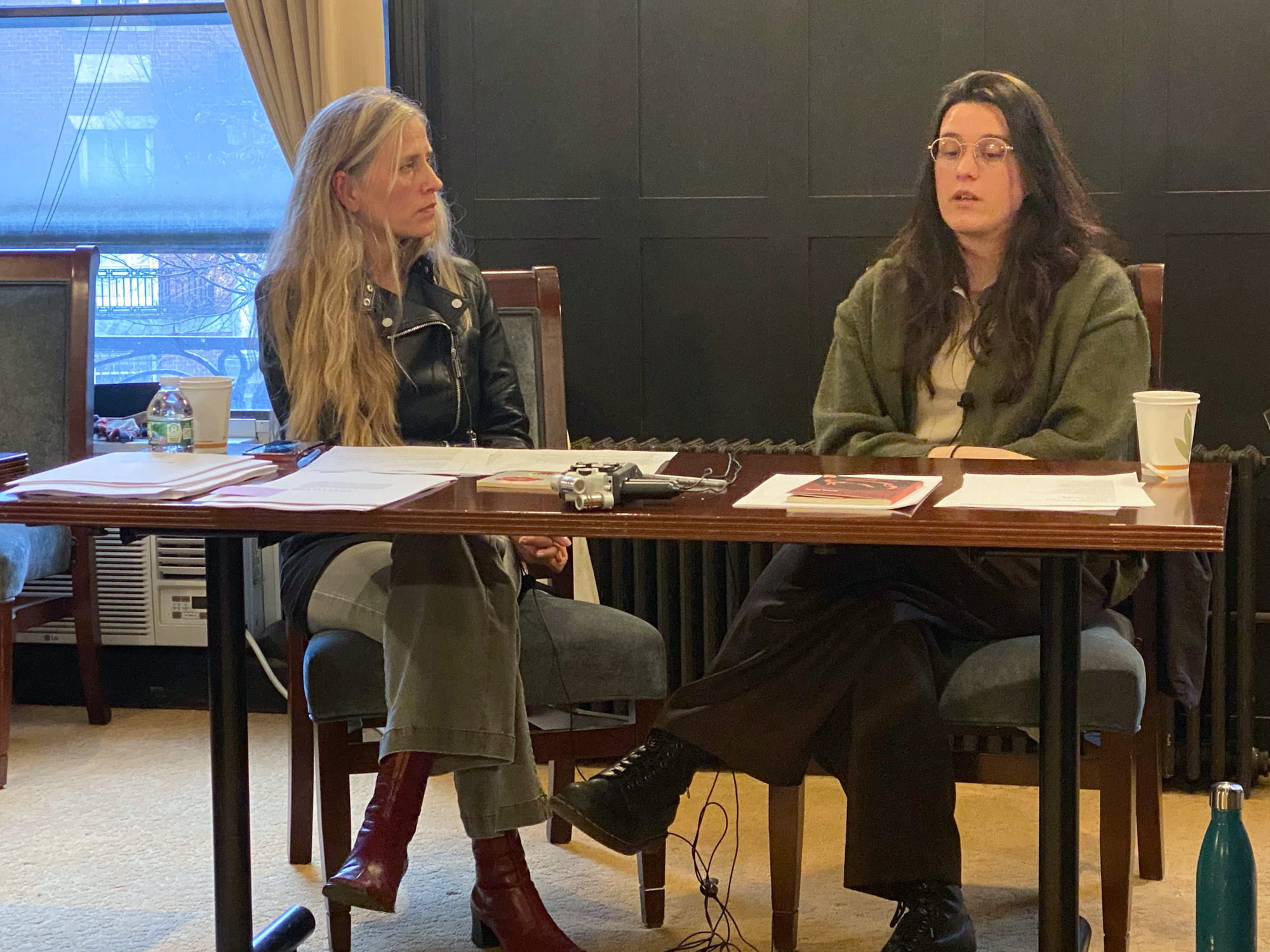The concept of home is highly coveted and rarely concrete, but writer Selma Asotić explores the possibility that home is not entirely physical. As a bilingual poet from Bosnia and Herzegovina, Asotić has grappled relentlessly with a sense of belonging, finding refuge in the art of literature.
“I don’t want to be the poet you expect me to be,” Asotić said. “I don’t want to be your token Eastern European poet who escaped this poor, savage little country and has come to the shore of your freedom and your democracy, and now I’m going to reflect you back to yourself.”
Instead, she aims to write poems that unsettle and challenge her audiences.
Asotić visited Boston University’s Pardee School of Global Studies on Thursday for a reading of her first poetry book, “Reci vatra.” During the event, called Writing Across Borders, she read from the collection and discussed her body of work that emerged from a cross-cultural life between Bosnia and the United States.

“Reci vatra” was published in Bosnia and Herzegovina and Serbia in 2022, and this year will see the release of English and German versions. The poetry collection has won many awards, including the 2023 Štefica Cvek award, which honors feminist and queer literature published in the Yugoslav region.
Even with her accolades, Asotić said in an interview she would rather people have a “straightforward encounter with poetry,” free from “explanation or explication.” For her, poetry is a collective endeavor of humanity, not a race for awards and accolades.
Asotić attended University of Sarajevo for her undergraduate degree and holds an MFA in poetry from BU, and she is now pursuing her doctorate in Comparative Literature from University of Massachusetts-Amherst.
Stacy Mattingly, a lecturer in the College of Arts and Sciences Writing Program and moderator of the event, met Asotić in 2015 at an online writer’s workshop that Mattingly launched. Mattingly described Asotić’s “Reci vatra” as “rich and multi-dimensional.”
“Selma’s work presents a layered portrait of consciousness that readers can find themselves in and find opportunity to be challenged,” Mattingly said.
For Asotić, writing was an instinct that evolved into the craft she pursues at a professional capacity. Since she was nine, writing has been an integral part of Asotić’s self-expression and self-exploration — so much so, that she said “it never occurred to me that I could be anything else.”
However, Asotić explained in the panel that poetry affects her understanding of what it means to belong. She said has never experienced a concrete sense of belonging — a distance she feels is necessary for a poet.
“I really think that exile is the natural state of poetry and that a poet is naturally a person in exile,” she said during the panel. “You’re trying to always maintain this distance from which you can write and question things.”
When she moved to the United States and began writing in English instead of Bosnian, her poetry not only adopted a new perspective, but also an entirely new language, which further confounded her perception of belonging.
“For a writer to think about home, you also have to think about language because a writer’s home … it’s not your country. It’s not your nation. It’s your language, that’s your home,” Asotić said at the discussion Thursday.
Asotić explained that writing in a new language affected both her poetry and her sense of self. Writing in English freed her to explore new topics in her poetry and to explore parts of her identity she didn’t realize existed.
As a result, Asotić distinguishes her poetry between her Bosnian and American audiences. Still, one goal underlies all her writing: the desire to discomfort.
“I believe that the existing state of things right now is very bad and untenable and not good for human beings,” Asotić said in an interview. “I want my poetry to not be the handmaiden of the system. I want it to articulate an alternate vision of what it means to be human and what it means to relate to other human beings.”
Kevin Clenard, a senior in Pardee and CAS, attended Asotić’s talk on Thursday. Having studied her work in a Balkan literature class, he said he had expected Asotić to cover tough subjects in the discussion, but that she exceeded his expectations.
Clenard said that, in international relations, people often disregard the points of view of those who live in regions they study. He said that hearing Asotić talk about living in Bosnia, former Yugoslavia, during wartime emphasizes the need to listen to people.
“It’s so important for people to actually hear these perspectives instead of just studying it, especially if they’re going into this field,” Clenard said. “There’s such a tendency that I see, even within classes at Pardee, of people being completely disconnected from the world they’re talking about.”
Asotić said growing up in war-torn Bosnia has grounded her in the reality of the world.
“I’ve spoken about this with my friends in Bosnia, that we kind of feel like post-apocalyptic people,” Asotić said in an interview. “It’s given me a kind of appreciation of how fragile life is.”
During the discussion, Asotić read a piece entitled “They Descend Upon Us” about the neutral, often trivializing, academic jargon of doctorate students who study the Balkan region. Later in the discussion, Asotić rejected the notion that this disconnect between reality and theory is inevitable.
“If I believed it was inevitable, I wouldn’t be a writer,” she said. “I think we can transcend differences in our experiences, in our backgrounds, in our ethnicities, in everything that separates us. I think there’s always more things that we have in common, and I think that we can speak to each other across these differences.”























































































































Emma • Apr 8, 2024 at 12:32 pm
Very insightful and important article!